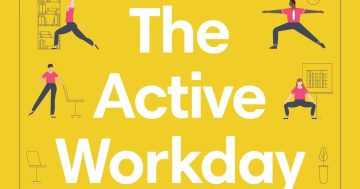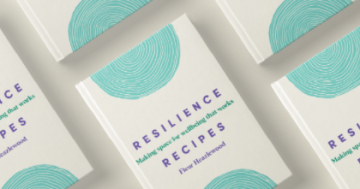Arianna Huffington* says there are good reasons behind the new workplace phenomenon called ‘quiet quitting’ — but not as the only alternative to overwork and burnout.
 Quiet quitting: It’s a term, and an idea, that’s not-so-quietly gathering steam.
Quiet quitting: It’s a term, and an idea, that’s not-so-quietly gathering steam.
I first noticed it in July, when a video described it thus:
“You’re not outright quitting your job, but you’re quitting the idea of going above and beyond.
“You’re still performing your duties, but you’re no longer subscribing to the hustle culture mentality that work has to be your life.
“The reality is, it’s not, and your worth as a person is not defined by your labour.”
Since then, like an invasive species, the term has caught on, with recent write-ups in various magazines and newspapers, including the New York Times.
As the Times notes, the term means different things to different people.
For some, it simply means quitting on hustle culture, which is a good thing, but for others, it means just going through the motions, accepting a lack of engagement, joy and purpose in our work as a long-term solution to burnout.
That’s the version of quiet quitting we need to quit.
There’s a reason quiet quitting is resonating so widely.
It’s a response to a very real problem — the global epidemic of stress and burnout.
It was bad long before anybody had ever heard of COVID-19 and, as we all know, it’s only gotten worse since the pandemic began.
What we’re seeing is the breakdown of a model of working that goes back to the Industrial Revolution.
We’re living through a time of profound disruption and transformation, so it’s only natural that there are going to be a range of responses to what should replace the old model.
The idea that burnout and quiet quitting are our only options is clearly a false choice.
There’s a third alternative — being engaged in our work without burning out and sacrificing our health and happiness.
We’re not just in a crisis of burnout, we’re also in a crisis of purpose and meaning.
In recent years study after study has validated the ancient wisdom that having a sense of purpose is deeply tied to our physical and mental wellbeing.
Implicit in quiet quitting is the idea that finding purpose and engagement in our work somehow saps us, or makes us more susceptible to burnout.
In fact, purpose is an antidote to burnout.
While we are much more than our jobs, and our identities and our worth are not based on what we do at work, our jobs take up a lot of our lives.
Burnout is costly and damaging, but quiet quitting also has its costs.
As Matt Spielman, a career coach, said: “There is no sadder thing to waste all this time in your life trying not to enjoy and be engaged and being excited in the work you are doing.”
There is also the impact quiet quitting has on our co-workers.
As Gabrielle Judge, whose job is in customer success, put it: “Some people are taking quiet quitting as in passive aggressively withdrawing, and that doesn’t win for everyone.
“It isn’t always about you.
“You’re on a team, you’re in a Department.”
What’s encouraging about this new trend is how profoundly young people are rejecting burnout and hustle culture.
They’re the first generation not to brag about working 24/7, being always available and “sleeping when they’re dead”.
That’s a cause for celebration, but they deserve more options than burnout or quiet quitting.
It’s up to employers to recognise that employee wellbeing is directly tied to performance.
How many hours we work does not reflect the quality of our work, and that’s why investing in employee wellbeing and mental health is increasingly seen as critical to business success.
Here are some of the tools and strategies that we have implemented at Thrive as well as many of the companies we’re working with.
The entry interview
A conversation between a new hire and their manager on day one in which the first question is: “What’s important to you in your life outside of work and how can we support you?”
Compassionate directness
Empowering employees to share feedback and surface problems in real time.
Nobody should be quiet about setting boundaries and taking care of themselves at any time, let alone if they’re at risk of burnout.
Thrive time
Additional time off — from a few hours to a few days — to recharge after a period of intense work.
Giving days
Paid time off for employees to volunteer and give back — using the proven power of giving as another way to boost wellbeing.
Thrive pulse
A daily question for employees that prompts a moment of reflection and gives leaders real-time, anonymised insights into their people’s mental health.
Microsteps
Small, science-backed steps to help people make changes in their daily lives around sleep, movement, nutrition, focus and connection.
The paradox in the quiet quitting trend is that Gen-Zers are very unquietly working to change the world in so many long overdue ways.
They’re not content to accept the world they’ve been handed, when it comes to race, climate, mental health, the economy and so much more.
So why give up on changing how their organisations work?
Why not take advantage of this once-in-a-generation opportunity to redefine how we work and live? That’s a goal we should never quit on.
*Arianna Huffington is the founder and Chief Executive of Thrive Global; the founder of The Huffington Post, and the author of 15 books, including, most recently, Thrive and The Sleep Revolution.
This article first appeared on LinkedIn.











